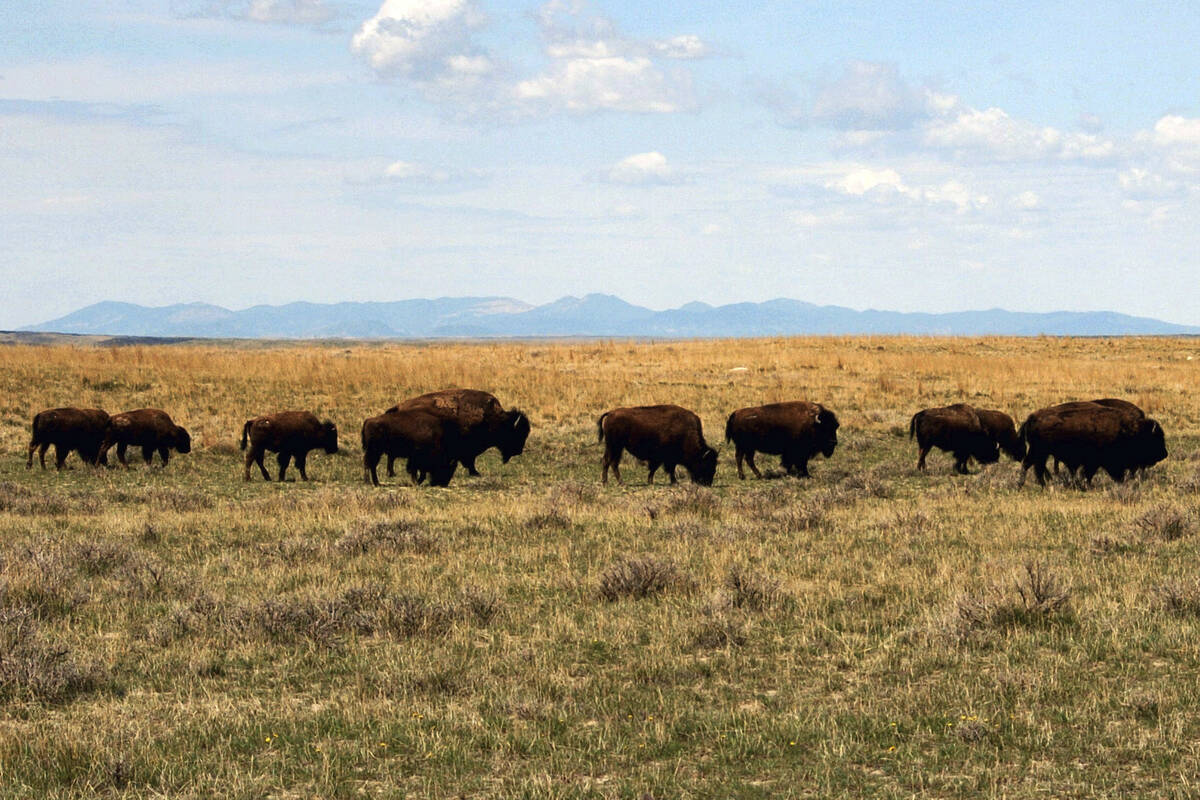COMMENTARY: Land on the auction block
It “is the most successful program in the history of Nevada, investing literally billions of dollars into our state’s economy toward public works projects as well as restoration and conservation efforts,” proclaimed the late Sen. Harry Reid, then one of the most powerful Democrats in the country. Good grief, what was the program? After all, at the time, Nevada, the Silver State that was “battle born” during the Civil War had been in the Union for 150 years. It must have been remarkable.
It will come as a shock to Democrats that Reid was talking about a program passed by Congress that sold federal land to private parties. To hear members of his party and radical environmental groups talk today, selling public land is blasphemy.
When I declared in a 2016 op-ed in the National Review Online that the Founding Fathers intended to sell all federal land, heads exploded, especially after I joined the Trump administration to lead the Bureau of Land Management. On cue, Joe Biden and Senate Democrats declared me unfit to lead the agency because, in their view, I hated public lands.
Based on that reaction, one might think there are limited public lands to which the federal government must cling tightly, lest they slip away. To the contrary.
In addition to the 1.7 billion off-shore acres owned by the United States, the government also owns one-third of the nation’s land mass. The BLM leads with 245 million acres, one-tenth of the country, followed by the U.S. Forest Service (193 million acres), the U.S. Fish and Wildlife Service (89 million acres), the National Park Service (80 million acres) and the Department of Defense (21 million acres). Granted, some of the land is special and thus is set aside by Congress as parks, monuments and wilderness areas. But much of it is multiple use — that is, available for economic, including recreational, use.
Most federally owned land is in the West and Alaska, where federal ownership dominates. Consider Alaska (61 percent federally owned), Nevada (85 percent federally owned), and Idaho and Utah (each 64 percent federally owned). Local units of government are even more subordinate to and hence hemmed in by federal landlords. For instance, although “only” half of my home state of Wyoming is federal land, 97 percent of Teton County is federally owned. Therefore, it is no surprise that Congress, which is responsible for management of federal lands, often has recognized state and local needs for and public interest in the disposal of federal lands and enacted legislation to serve that purpose.
It was one such federal law that drew praise from Sen. Reid as “the most successful program in the history of Nevada.” The Southern Nevada Public Lands Management Act of 1998 — SNPLMA, as it is called — drew its inspiration from legislation in 1980 by my then-boss, the late Rep. James D. Santini of Nevada. The Santini-Burton Act, which authorized both the sale of excess federal lands in Clark County and the use of the proceeds to acquire environmentally sensitive lands around Lake Tahoe, was a huge success.
In the 1990s, however, it became clear the Santini-Burton Act’s original boundaries for land sales in Clark County, which is nearly 90 percent federally owned by six agencies, were too limited to accommodate the growth in population in Las Vegas. Hence the SNPLMA.
Over two and one-half decades, SNPLMA has generated more than $4 billion and permitted privately owned land to sustain homes, schools and businesses. As one career BLM official told me in 2020 as he drove me through miles and miles of his handiwork, “Everything you are seeing was once on BLM land; none of this would have been possible without SNPLMA.”
That brings us to former President Donald Trump’s recent acknowledgement that the federal government owns a third of the country and his plan to sell some of it to build great American cities. One thing lacking from his pledge was recognition that Congress has been selling public land for decades to permit the building of great American cities, such as Las Vegas, to provide for jobs, opportunities, communities and homes. Sen. Reid, unlike today’s Democrats, would agree with Trump on the wisdom of more such federal laws. Faster, please.
William Perry Pendley, a Wyoming attorney and Colorado-based public-interest lawyer for three decades, served in the Reagan administration and led the Bureau of Land Management under President Donald Trump.

















